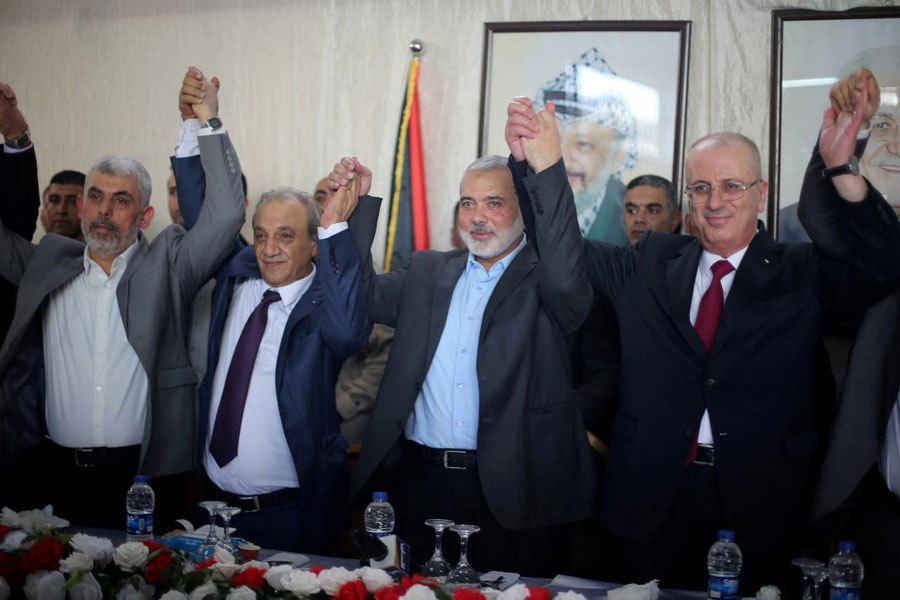Australia/Israel Review
Scribblings: Blockade Mentality
Jun 27, 2018 | Tzvi Fleischer

According to reports, the Palestinian Authority (PA) recently threatened to end security cooperation with Israel if the blockade of Gaza is lifted.
Read the above sentence carefully. There is no missing word in it, such as “not”. To be crystal clear, the PA is not threatening to end its security cooperation with Israel if it does not lift its restriction on goods flowing into and out of Gaza, as one might expect. It is instead threatening to end cooperation if Israel does lift the blockade– at least according to a report from Israel’s Channel 10 TV news.
What Channel 10 reported was that, in late May, Egypt and Qatar put proposals to Israel for a truce with Gaza’s Hamas rulers. Under its terms, Israel would substantially reduce restrictions at Gaza’s border crossings, increasing the entry of goods and services to the enclave, on the condition that they are not used to boost Hamas’ armed wing. In exchange, Hamas would guarantee a complete cessation of rocket fire and tunnel building, stop attempting to breach the security fence along the Gaza border and return two Israeli civilians being held captive in Gaza. Egypt would also loosen restrictions at its Rafah crossing into Gaza and would monitor compliance with the deal.
According to Channel 10, these discussions prompted a letter from PA intelligence chief Majed Faraj to his Israeli counterpart Nadav Argaman, head of the Shin Bet security service. In the letter, Faraj reportedly said that PA President Mahmoud Abbas would halt security cooperation with Israel if Jerusalem agreed to a deal to substantially lift the blockade of Gaza.
While I cannot vouch for the accuracy of the Channel 10 report, it is at least plausible. And that should tell the well-meaning observer two things:
Firstly, the battle between the Palestinian Authority and Hamas for leadership of the Palestinian national movement is so bitter and deep as to be unbridgeable for the foreseeable future. It is not simply that the PA so badly wants to disempower and pressure Hamas that it is prepared to encourage continued suffering for Gazans. The PA is apparently even prepared to threaten something important to its own survival to see that both the pressure and suffering continue.
It is important to understand that security cooperation with Israel is not something the PA undertakes as a favour to the Jewish state – indeed PA President Mahmoud Abbas has increasingly been very public in recent months in rejecting Israel having any legitimacy whatsoever. That cooperation helps keep the PA in power in the West Bank in the face of both a serious threat from Hamas efforts to overthrow it, and growing unpopularity. Yet the PA is prepared to risk all of that to prevent Israel making indirect arrangements with Hamas that will improve the lives of Gazans if this legitimises and stabilises Hamas rule there.
Second, it also exposes the reality that the worsening situation in Gaza in recent months has little to do with the Israeli blockade, which has actually eased considerably over recent years, and a great deal to do with the pressure being imposed on the strip by the PA, on top of many years of Hamas mismanagement. Since last year, the PA has not only refused to pay for electricity and fuel supplied to Gaza, but has also cut off or reduced salaries to many Gazan civil servants, which are a key underpinning for the Gazan economy. It has even apparently stopped medical supply deliveries to the strip and attempted to limit the ability of Gazans to access medical treatment outside Gaza. Israel had to effectively force the PA to reverse its decision on electricity by threatening to withhold PA funds to pay for it, and has tried to make up some of the medicine shortfalls with its own shipments.
A Gaza/West Bank divide
Meanwhile, not only are Hamas and the PA at each other’s throats, there are also clear differences in behaviour between Gaza and West Bank residents. Here’s another surprising fact – the first half of 2018 has seen a decline in both Palestinian terrorism and violent demonstrations in the West Bank compared to 2017, according to Israeli statistics.
This is surprising because you would expect the opposite, given that in recent months there was considerable uproar in Palestinian circles about the move of the US Embassy to Jerusalem, and this is also the period during which, since March, Hamas has been desperately trying to incite West Bank violence as part of its “March of Return” campaign along the borders of Gaza.
This suggests that, after more than a decade of being ruled by different governments and largely kept from interacting, the divide between West Bank and Gazan Palestinians is getting larger. West Bankers, even though sympathetic to Hamas’ ideology and goals, appear to have very little interest in following the confrontationist script being pushed by the group. The truth is that there have always been some differences and divisions between residents of the West Bank and Gaza, both cultural and as a result of the contrast between Jordanian rule and Egyptian military control that the two areas respectively experienced between 1948 and 1967. However, these have generally been papered over in the name of Palestinian unity. Today, it is looking doubtful if even such nominal unity will be achieved again.
Tags: Fatah, Hamas, Israel, Palestinians






